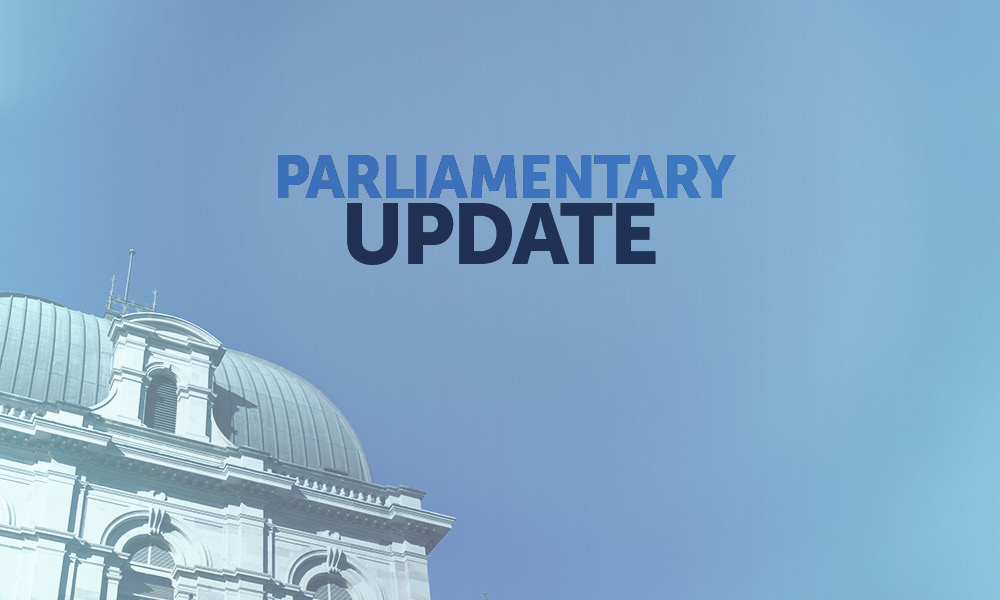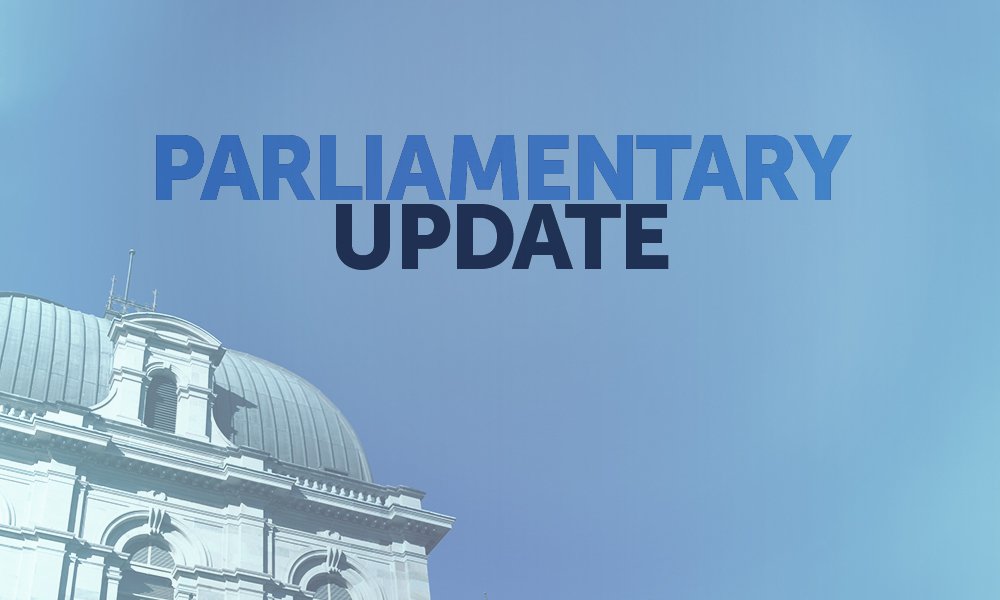Queensland Parliament sat from 18 April to 20 April 2023.
Bills introduced
The following bills were introduced into the Legislative Assembly:
- Health Practitioner Regulation National Law (Surgeons) Amendment Bill 2023
- Planning (Inclusionary Zoning Strategy) Amendment Bill 2023
Health Practitioner Regulation National Law (Surgeons) Amendment Bill 2023
On 20 April 2023, the Minister for Health and Ambulance Services, Yvette D’Ath, introduced the Health Practitioner Regulation National Law (Surgeons) Amendment Bill 2023.
The Bill proposes to amend the Health Practitioner Regulation National Law to:
- protect the title ‘surgeon’ within the medical profession to safeguard the public and strengthen the regulation of cosmetic surgery in Australia
- clarify the decision-making authority of tribunals after hearing a matter about a registered health practitioner.
The Bill amends the:
- Health Practitioner Regulation National Law Act 2009 (Qld)
Useful resources:
The Bill was referred to the Health and Environment Committee for inquiry. Submissions to the inquiry will close on 12 May 2023 and a public hearing is scheduled to be held on 22 May 2023. For further details regarding the inquiry process, visit the committee’s website.
Planning (Inclusionary Zoning Strategy) Amendment Bill 2023
On 19 April 2023, the Member for South Brisbane, Dr Amy MacMahon, introduced the Planning (Inclusionary Zoning Strategy) Amendment Bill 2023 (a private member’s bill).
The objectives of the Bill are to:
- build public housing via requiring developers to do so
- integrate public housing with other residential areas in order to maximise social inclusion.
The Bill achieves the objectives by enacting the following inclusionary zoning policy at the state level:
- For all residential development projects completed on or after 1 July 2024, at least 25% of the dwellings constructed for the project are to be gifted to the state of Queensland for the purpose of providing public housing.
- Each reserved dwelling will be finished to the same standard, and have the same features, as the other dwellings constructed for the residential development project. This includes size and floor area.
- A ‘residential development project’ means development, carried out by an entity other than the state, related to the construction of 10 or more dwellings.
- Further, for all residential subdivision projects completed after 1 July 2024, at least 25% of the lots (rounded up to the nearest whole number) created for the project are to be gifted to the state of Queensland for the purpose of providing public housing.
- A ‘residential subdivision project’ is defined as any private development which subdivides 1 lot into 10 or more lots on which dwellings can lawfully be constructed.
The Bill amends the:
- Planning Act 2016
Useful resources:
The Bill was referred to the State Development and Regional Industries Committee for inquiry. The committee is finalising arrangements for this inquiry. For more details regarding the inquiry process, visit the committee website.
Legislation passed this Parliament
The following legislation was passed by the Legislative Assembly:
- Police Powers and Responsibilities and Other Legislation Amendment Bill 2022
- Police Powers and Responsibilities and Other Legislation Amendment Bill 2023
- Health and Other Legislation Amendment Bill 2022
- Local Government Electoral and Other Legislation (Expenditure Caps) Amendment Bill 2022
Police Powers and Responsibilities and Other Legislation Amendment Bill 2022
On 30 November 2022, the Minister for Police and Minister for Corrective Services, Mark Ryan, introduced the Police Powers and Responsibilities and Other Legislation Amendment Bill 2022.
The Bill was referred to the Economics and Governance Committee for inquiry.
The Bill was passed with amendment on 20 April 2023.
The main objectives of the Bill are to:
- strengthen child protection laws by increasing the periods for which an offender is required to report under the Child Protection (Offender Reporting and Offender Prohibition Order) Act 2004 (CPOROPO Act)
- improve the ability of the Queensland Police Service (QPS) to investigate cybercrime and offences committed by reportable offenders, by making certain offences against the Criminal Code and the CPOROPO Act relevant offences for controlled operations and surveillance device warrants, in Schedule 2 of the Police Powers and Responsibilities Act 2000
- enhance the capacity of the QPS to investigate organised crime by facilitating the use of civilian participants in controlled activities in certain limited circumstances
- strengthen laws to deter hooning behaviour by creating additional offences under the Transport Operations (Road Use Management) Act 1995 and the Summary Offences Act 2005, and increasing the penalties that apply for an offence under s211 of the Transport Operations (Road Use Management) – Vehicle Registration Regulation 2021.
Amendments were moved during consideration in detail to achieve its policy objectives by:
- amending the Police Service Administration Act 1990 to allow for the employment of former police officers as paid special constables, forming a police reserve to address temporary resource gaps impacting service delivery and peak period of frontline demand.
The Bill amends the:
- Child Protection (Offender Reporting and Offender Prohibition Order) Act 2004
- Police Powers and Responsibilities Act 2000
- Summary Offences Act 2005
- Transport Operations (Road Use Management—Accreditation and Other Provisions) Regulation 2015
- Transport Operations (Road Use Management) Act 1995
- Transport Operations (Road Use Management—Vehicle Registration) Regulation 2021
Queensland Law Society provided a submission on the Bill.
Useful resources:
- Parliamentary Report
- Bill
- Explanatory Note
- Statement of Compatibility
- Explanatory Speech
- Committee
- Amendment in Committee – Government Agreed
- Amendment in Committee – Explanatory Note
- Amendment in Committee – Statement of Compatibility
Police Powers and Responsibilities and Other Legislation Amendment Bill 2023
On 21 February 2023, the Minister for Police and Minister for Corrective Services, Mark Ryan, introduced the Police Powers and Responsibilities and Other Legislation Amendment Bill 2023.
The Bill was referred to the Legal Affairs and Safety Committee for inquiry.
The Bill was passed without amendment on 20 April 2023.
The Queensland Law Society provided a submission on the Bill.
The objective of the Bill is to promote the efficiency of the Queensland Police Service (QPS) and the Queensland Fire and Emergency Services (QFES) through a range of amendments that will deliver operational or administrative improvements.
In relation to the QPS, amendments in the Bill will:
- enhance the Police Drug Diversion Program through introducing drug diversion warnings, allowing an eligible person to participate in a subsequent drug diversion assessment program, and the expansion of minor drug offences to include the possession of prescribed quantities of any type of dangerous drug and certain pharmaceuticals
- allow for the appointment of a person as an executive officer rather than to an executive officer position, which will allow executive officers (that is, assistant and deputy commissioners) to be appointed generically to their respective rank, or to the particular position they will fill
- Introduce a circumstance of aggravation for the offence of evading police under section 754 of the Police Powers and Responsibilities Act 2000.
The Bill will make minor amendments to legislation administered by QFES by:
- confirming any request or application made under sections 64 (Prohibition by commissioner against lighting of fires) and 65 (Granting of permits) of the Fire and Emergency Services Act 1990 (FES Act) must contain the information prescribed by regulation and, in the case of a request under section 64, be made in the way prescribed by regulation
- introducing the new section 150BA (Assault of persons performing functions or exercising powers) of the FES Act and making consequential amendments to the offence outlined in section 150C (Obstruction of persons performing functions).
The Bill will also amend the maximum penalty of section 5 (Trafficking in dangerous drugs) of the Drugs Misuse Act 1986 from 25 years’ imprisonment to life imprisonment, to reflect the serious nature of this offence.
The Bill amends the:
- Drugs Misuse Act 1986
- Fire and Emergency Services Act 1990
- Penalties and Sentences Act 1992
- Police Powers and Responsibilities Act 2000
- Police Service Administration Act 1990
- Youth Justice Act 1992
- legislation mentioned in schedule 1 of the Bill.
Useful resources:
Health and Other Legislation Amendment Bill 2022
On 29 November 2022, the Minister for Health and Ambulance Services, Yvette D’Ath, introduced the Health and Other Legislation Amendment Bill 2022.
The Bill was referred to the Health and Environment Committee for inquiry.
The Bill was passed without amendment on 19 April 2023.
The Queensland Law Society provided a submission on the Bill.
Key amendments in the Bill include:
- requiring Hospital and Health Boards and Hospital and Health Services to proactively consider ways to support staff health, safety and wellbeing (Hospital and Health Boards Act 2011)
- allowing disclosure of information about individuals working with medicines or poisons, if in the public interest (Medicines and Poisons Act 2019)
- enabling Queensland Health to disclose confidential medicines and poisons information for regulation, safety and compliance purposes (Medicines and Poisons Act 2019)
- clarifying the meanings of fumigation activity, pest control activity and the definition of primary producer, in relation to authorisation for use of fumigants and pesticides (Medicines and Poisons Act 2019)
- establishing a statutory framework for recording tribunal proceedings and providing access to records and transcripts (Recording of Evidence Act 1962)
- clarifying and restricting access to copies of records or transcriptions of Mental Health Review Tribunal proceedings (Mental Health Act 2016)
- changing requirements for adults waiving the right to representation in Mental Health Review Tribunal proceedings (Mental Health Act 2016)
- authorising schools to disclose student information to Queensland Health’s vision screening health service (Public Health Act 2005)
- extending notification requirements for the Queensland Cancer Register and enabling additional data to be collected (Public Health Act 2005)
- creating a new offence for failure to ensure a person does not receive greater than a specified dose of ionising radiation (Radiation Safety Act 1999)
- enabling low risk radioactive material to be exempted from requirements (for example, disposal requirements) (Radiation Safety Act 1999)
- changing requirements for doctors to purchase human tissue products approved by the Therapeutic Goods Administration’s ‘Special Access Scheme’ (Transplantation and Anatomy Act 1979)
- ensuring consistent consent processes for human tissue and organ donation across public and private hospitals (Transplantation and Anatomy Act 1979)
- removing the requirement for print newspaper publication of water fluoridation decision and implementation notices (Water Fluoridation Act 2008).
The Bill amends the:
- Hospital and Health Boards Act 2011
- Medicines and Poisons Act 2019
- Mental Health Act 2016
- Public Health Act 2005
- Radiation Safety Act 1999
- Recording of Evidence Act 1962
- Transplantation and Anatomy Act 1979
- Water Fluoridation Act 2008
Useful resources:
Local Government Electoral and Other Legislation (Expenditure Caps) Amendment Bill 2022
On 1 December 2022, the Deputy Premier, Minister for State Development, Infrastructure, Local Government and Planning and Minister Assisting the Premier on Olympics Infrastructure, Steven Miles, introduced the Local Government Electoral and Other Legislation (Expenditure Caps) Amendment Bill 2022.
The Bill was referred to the State Development and Regional Industries Committee for inquiry.
The Bill was passed with amendment on 18 April 2023.
The purpose of the Bill is to implement an electoral expenditure caps scheme for Queensland local governments.
Key features of the scheme include:
- local government electoral expenditure caps for:
- councillor and mayoral candidates
- groups of candidates
- registered political parties that endorse a candidate in an election
- third parties (registered and unregistered)
- the Electoral Commission of Queensland to decide and publish enrolment numbers for local government areas and divisions and the corresponding caps
- prescription of certain offences as integrity or serious integrity offences under the Local Government Act 2009 and City of Brisbane Act 2010.
The expenditure cap scheme being proposed for local government elections is similar to the laws that are already in place for Queensland state elections.
Amendments were moved during consideration in detail to achieve its policy objectives by:
- amending the Residential Tenancies and Rooming Accommodation Act 2008 (RTRA Act) and Residential Tenancies and Rooming Accommodation Regulation 2009 to deliver the Premier’s commitment to reduce the frequency of rent increases to once a year for all existing tenancies and new tenancies entered from 1 July 2023
- amending the Bill to correct a drafting error in section 277 of the RTRA Act to address an unintended consequence of a drafting change made by the Housing Legislation Amendment Act 2021. This correction will reduce confusion and better achieve the intended policy objective.
The amendments to the Bill will:
- amend sections 91, 93, and 105 of the RTRA Act and insert a new section 105B to limit rent increase frequency to once a year for all residential tenancy agreements and rooming accommodation agreements
- amend section 277 of the RTRA Act to correct the drafting error by replacing the word ‘before’ with ‘after’, to clarify interpretation and achieve the policy objective that no change was intended to the operation of the section or the obligations of parties
- provide appropriate transitional provisions to remove any doubt about the application of the rent increase frequency limit and effect of the drafting error correction, on actions already taken by parties to tenancy agreements
- make consequential amendments to the RTRA Act and the RTRA Regulation necessary to align with the amendments made by the Bill, to limit rent increase frequency and correct the drafting error in section 277 of the RTRA Act.
The Bill amends the:
- City of Brisbane Act 2010
- Local Government Act 2009
- Local Government Electoral Act 2011
Queensland Law Society provided a submission on the Bill.
Useful resources:
- Parliamentary Report
- Bill
- Explanatory Note
- Statement of Compatibility
- Explanatory Speech
- Committee
- Amendment in Committee – Government Agreed
- Amendment in Committee – Explanatory Note
- Amendment in Committee – Statement of Compatibility
Second reading
- Property Law Bill 2023
- Waste Reduction and Recycling and Other Legislation Amendment Bill 2023
Subordinate legislation
Subordinate Queensland Legislation notified in 2022 is available online.
Subordinate Legislation notified on the Queensland Legislation website from 31 March 2023 to 21 April 2023:
- SL No.26 of 2023: Proclamation No. 2—Queensland Veterans’ Council Act 2021 (commencing certain provisions)
- SL No.27 of 2023: Proclamation No. 2—Inspector of Detention Services Act 2022 (commencing remaining provisions)
- SL No.28 of 2023: Inspector of Detention Services Regulation 2023
- SL No.29 of 2023: Proclamation No. 1—Casino Control and Other Legislation Amendment Act 2022 (commencing certain provisions)
- SL No.30 of 2023: Collections (Deemed Registration) Amendment Regulation 2023
Queensland Government Gazette
The Queensland Government Gazettes for 2023 are available online.
Parliamentary sitting dates
As indicated on the parliamentary website, the Queensland Parliament is currently scheduled to next sit on 23 May 2023 to 25 May 2023.
Wendy Devine is QLS Principal Policy Solicitor, Jaime Gunning is a Law Clerk on the QLS policy team, and Caiti Betts is a Legal Assistant on the team.










Share this article